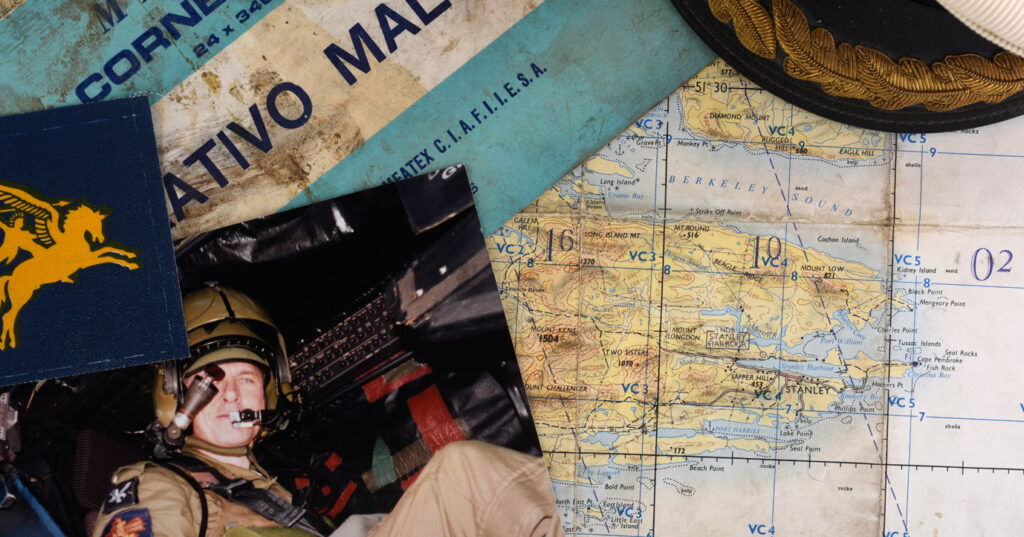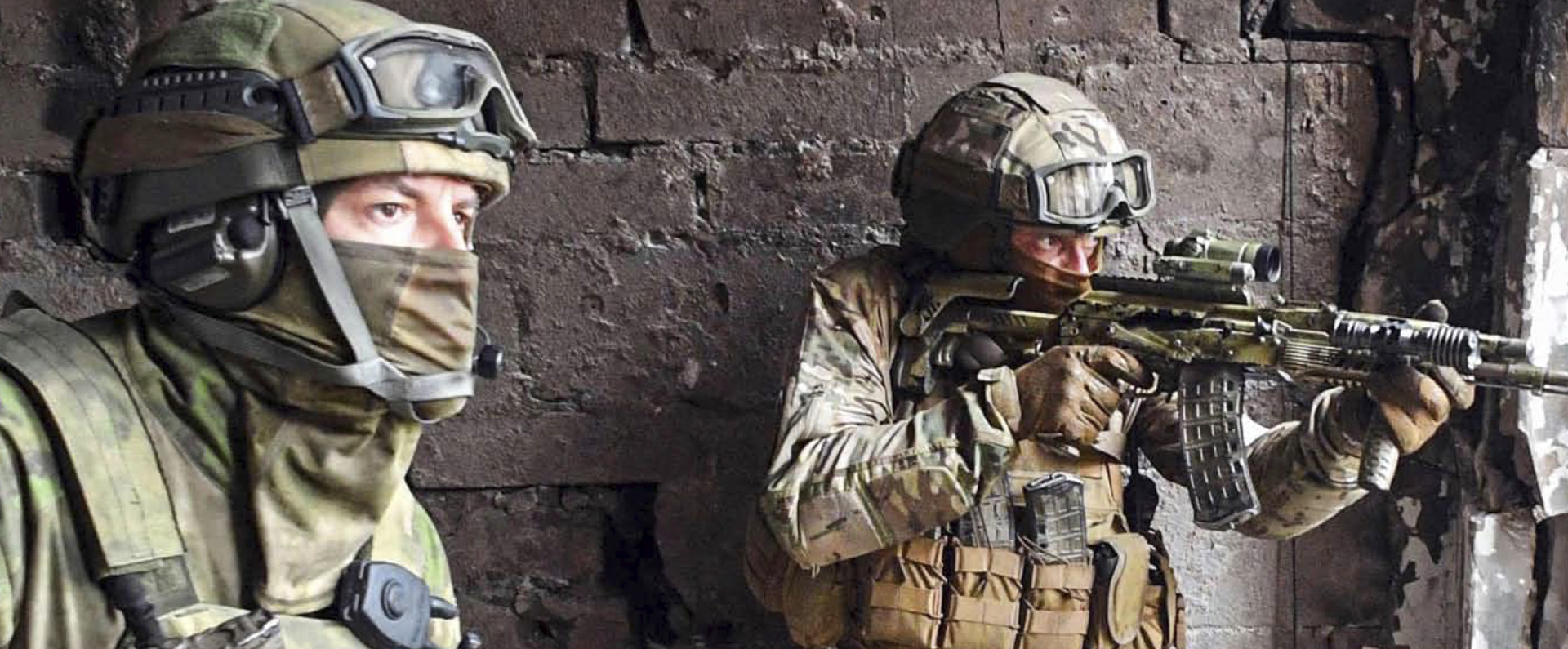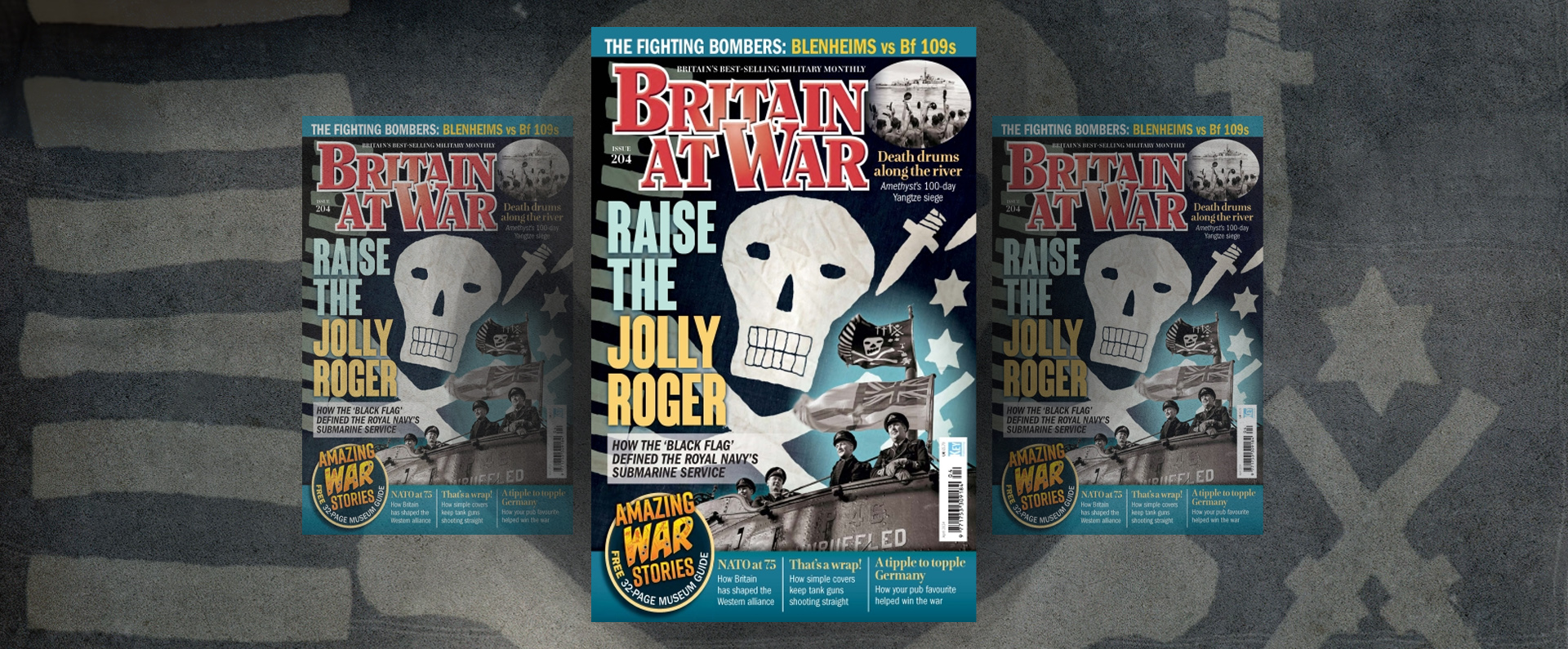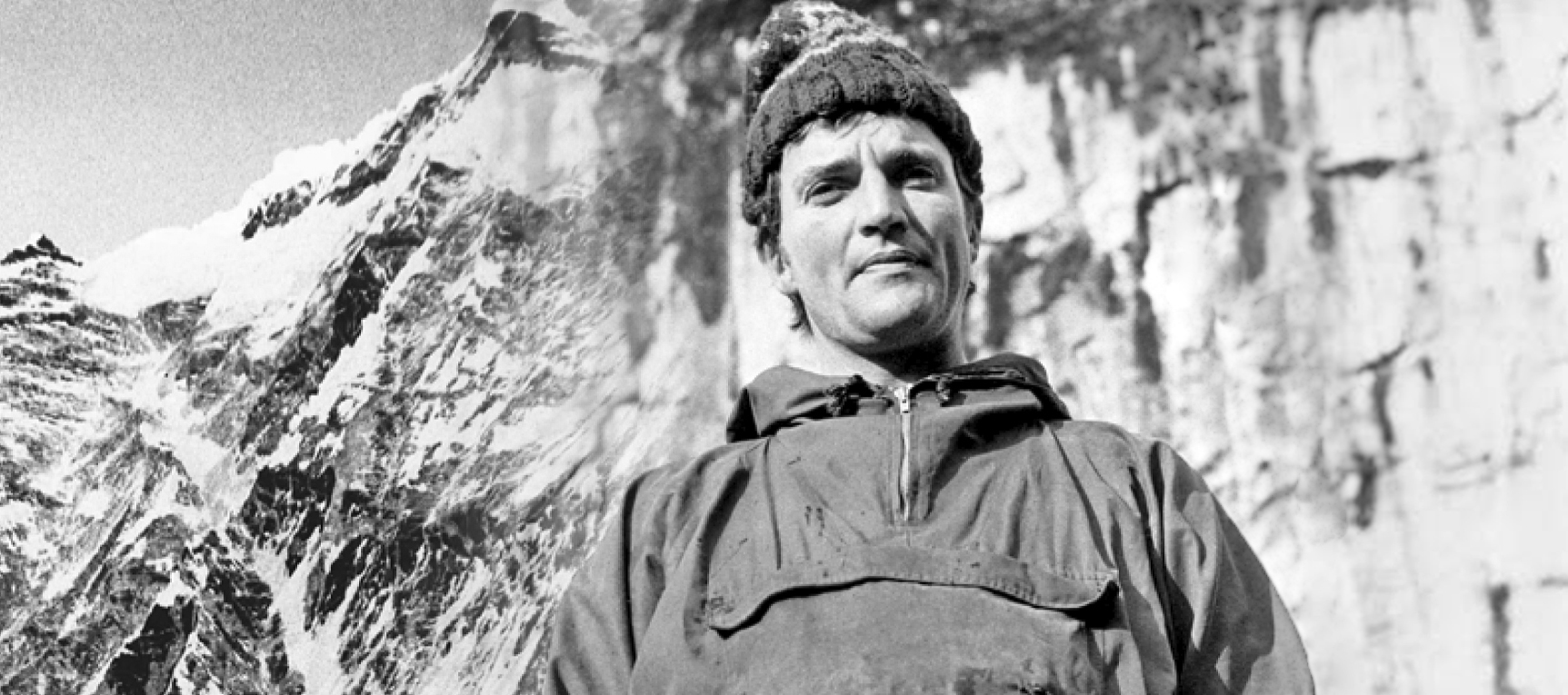
First published in Saga Magazine in January 2022.
As the 40th anniversary of the Falklands War approaches, we celebrate one of its heroes, William O’Brien, who is the only Royal Marine ever to receive the Distinguished Flying Medal. ‘Uncle Bill’ went on to be the oldest pilot to fly missions in Afghanistan, flying helicopters with the Royal Naval Reserve. By Lord Michael Ashcroft.
Four decades ago, his skill and bravery in the Falklands – evacuating casualties by helicopter under enemy fire – earned pilot William O’Brien a unique honour. In recognition of 17 night-flying sorties, rescuing wounded personnel and resupplying vital ammunition, he became the only Royal Marine ever to be awarded the Distinguished Flying Medal (DFM), and received the only such decoration of the conflict.
Yet what he achieved in his twenties in the South Atlantic has been matched in much more recent years – as ‘Uncle Bill’ came out of retirement to fly combat missions. Using his experience and knowledge, gained from three tours on the streets of Belfast during the height of the Troubles, through his Falklands endeavours to training the next generation of pilots, O’Brien rounded off his extraordinary 38-year career flying Apaches in Afghanistan.
Aged 55 and a grandfather, he found himself alongside many of the pilots he had trained, who affectionately nicknamed him ‘Uncle Bill’. None of them had even been born when he became a Royal Marine and was awarded his green beret.
With the 40th anniversary of the Falklands War approaching, I interviewed O’Brien, 67, at his home in Somerset for my new book, Falklands War Heroes. There he told me about flying a Gazelle helicopter with 3 Commando Brigade Air Squadron as British land forces retook the settlement of Goose Green in May 1982, after Argentina had invaded the Islands the previous month.
‘I felt a huge obligation to the infantry because I knew what it was like to be running short of ammunition, to be wet, dirty, bone-tired, hungry and thoroughly frightened,’ O’Brien, who joined the Marines at 17, told me. ‘These were the same men with whom, up until just a few years earlier, I would have been sharing the trenches. So I felt a huge affinity towards them and felt I had to go the extra mile to discharge my responsibility.’
The citation for his DFM commended his bravery in flying to the front line in the heat of battle and in appalling weather. ‘The conspicuous gallantry and cool professionalism displayed on all these occasions was superb and Sergeant O’Brien made an outstanding contribution.’
The Task Force sent by Prime Minister Margaret Thatcher to reclaim the Falklands had begun its land invasion at San Carlos Water, where 3 Commando Brigade Air Squadron were frequently attacked by Argentine aircraft. The squadron was subsequently involved in every major ground battle during the campaign in a variety of roles: reconnaissance, liaison, movement of ammunition to the front line, and recovery of casualties.
O’Brien told me of the strange physical effects on a pilot flying a helicopter through a war zone.
‘I landed one time at Goose Green during a mortar barrage,’ he said. ‘I could see the plumes of smoke and explosions and could feel a slight concussion through the airframe, but I felt detached in my own space – the helicopter was so noisy, you couldn’t hear the battle unfolding. I really thrived on the intensity of it, the test if you like, and frankly missed it when I returned to Britain after the war.’
After the Argentine surrender in June 1982, O’Brien became a helicopter instructor, but, in 1991, still in 3 Commando Brigade Air Squadron, he took part in Operation Haven in southern Turkey and northern Iraq to protect Kurdish refugees after the First Gulf War. There he saw US Apache attack helicopters in action, and he was subsequently posted to Fort Rucker, Alabama, to learn to fly them.
At the age of 50, O’Brien retired from the military, but continued as a helicopter instructor. Three years later, he volunteered for service in Afghanistan, with the Royal Naval Reserve. Despite never having been on operations in an Apache, O’Brien had been training Apache pilots. ‘In order to understand their requirements better, I thought I should experience operations in Afghanistan for myself,’ he told me.
His wife Helen jokingly suggested that he was having a ‘mid-life crisis’, but O’Brien – the son of two Irish car-factory workers from Coventry – insists his reasons for serving in the war zone were as straightforward as wanting to do his duty to his comrades, just as he had done in the Falklands. On that tour, O’Brien became both the only reservist pilot to fly front-line combat missions and the oldest Apache pilot to fly on operations.
O’Brien finally retired in 2010 and was awarded the Commander Joint Helicopter Command’s Personal Commendation, which was delivered in unusual circumstances. He was walking with friends on Dartmoor and, after stopping for lunch at The Plume of Feathers Inn in Princetown, the group heard a helicopter, which landed behind the pub. Its crew came into the bar to hand over the award.
‘I couldn’t have been more surprised; clearly someone in the party had colluded in the delivery arrangements,’ O’Brien told me. ‘That’s mates for you!’
Download a PDF of this article
For more information, visit:
LordAshcroftOnBravery.com


